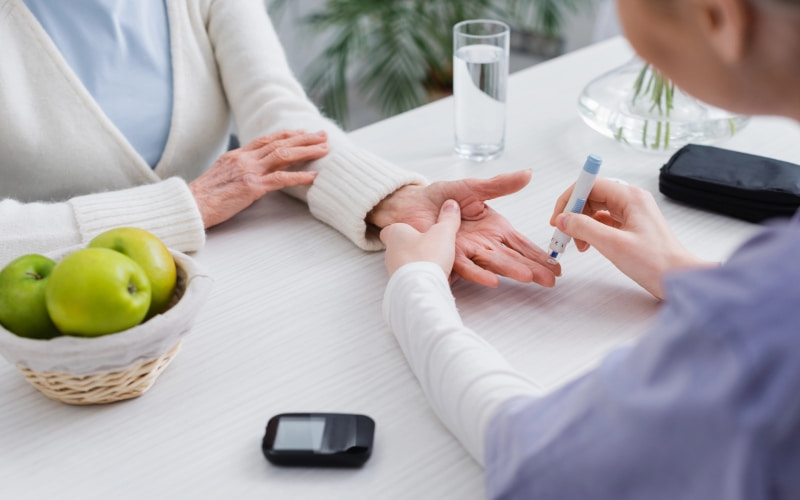Профессиональный аккаунт
У вас пока нет действующего кабинета в МИС "МедЭлемент". Создать кабинет частной практики?
Diabetes is one of the most insidious diseases. It can not only ruin the quality of life, but also render a person disabled. Diabetes is destructive for tissues and all vessels. In severe forms one might end up with gangrene and limb amputation.
However, diseases do not appear on their own. Their emergence involves a complex of predisposing factors. Understanding the development of diabetes helps to recognize the disease in a timely manner, and even prevent it in some cases.
There are two main types of diabetes: type 1, i.e. insulin-dependent, and type 2 - acquired or insulin-independent. Type 1 diabetes develops due to a lack of production of the hormone insulin by the pancreas.
Type 1 diabetes develops due to a genetic predisposition: if only the father has the disease, then the risk of the child developing diabetes is low (3-7%); the mother's disease poses the child to the risk of congenital transmission by no more than 10%; if both parents have diabetes, the risk of transmitting the disease to children increases up to 70%.
Type 2 diabetes is almost 80% inherited, even if only one parent has this condition. Previously, acquired diabetes often developed in adulthood. Today, more and more cases are reported when this disease is diagnosed in children.

Type 1 diabetes usually develops in childhood or adolescence. In this case, the symptoms of the disease appear within a few days. In insulin-dependent diabetes, a person can fall into a diabetic coma, so this condition requires urgent hospitalization. Type II diabetes does not manifest itself for a long time.
What should alert you:

In order not to induce the occurrence of this insidious disease, it is very important to exercise regular prophylaxis even before diagnostics.
What one is required to do:
1. Lead an active lifestyle and control weight. This may include walking, gymnastic exercises, swimming, cycling, ice skating. Any activity that also brings pleasure. Diabetes is directly related to obesity. Any physical activity lowers blood sugar levels and reduces the need for insulin.
2. Eat right. Eat foods high in dietary fiber, which normalize bowel function and lower cholesterol levels. These foods i clude all fruits and vegetables, beans, dairy products, nuts etc. Reduce the consumption of flour products, sweets, pasta. Eat only whole grain bread.
3. Get enough sleep. A rested body will not require a lot of glucose, so getting enough sleep is essential to prevent diabetes.
4. Don't smoke and avoid stress. Stress, smoking reduce the body's resistance to diabetes and are among the factors that cause diabetes.
5. Monitor your blood glucose if you are over 40. An analysis for sugar is especially necessary for those who have a tendency to be overweight and lead a sedentary lifestyle.